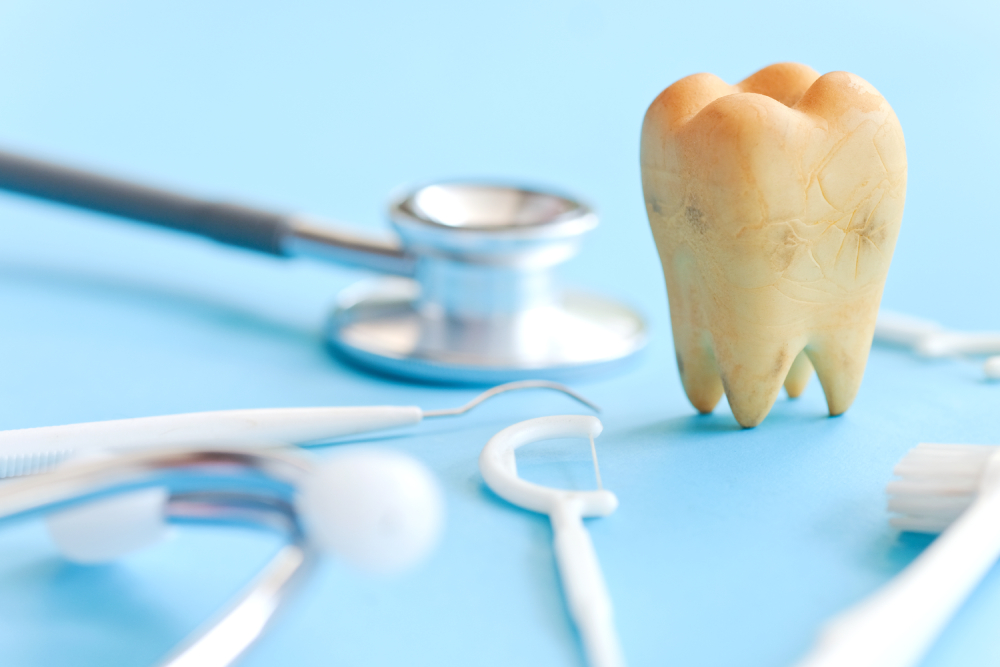
Wisdom Tooth Pain: Causes, Symptoms, Treatments and Prevention
Wisdom teeth, or third molars, are the last set of teeth to emerge in the mouth, typically making their appearance between the ages of 17 and 25. They were essential for our early ancestors who needed extra teeth, gums, and original wisdom tooth to grind down plant tissue and tough meats. However, due to the evolution of our diet and the development of modern dental care, wisdom teeth have become largely redundant.
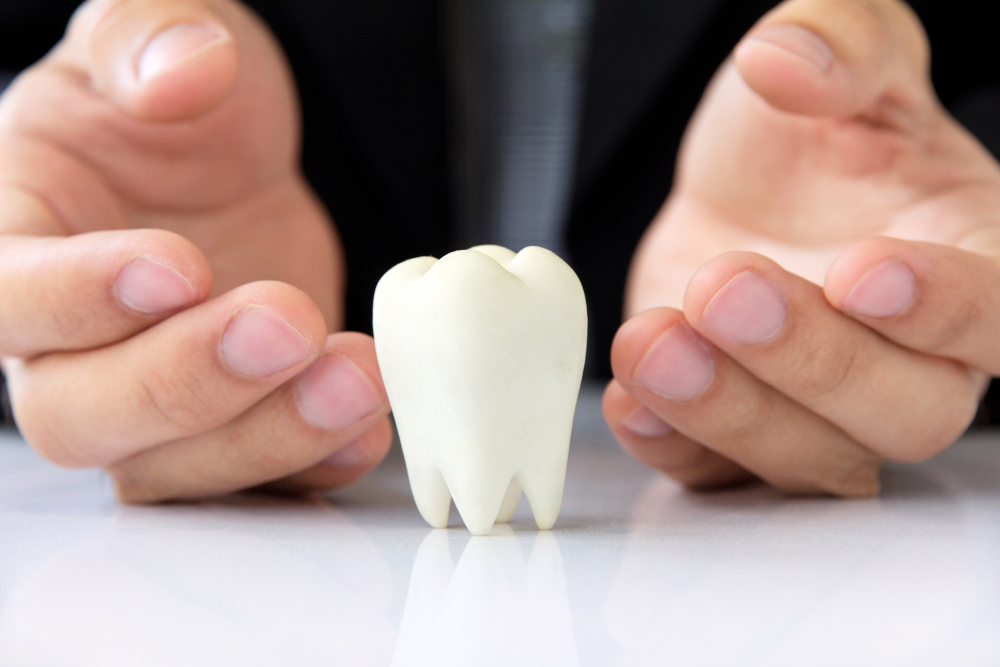
How Many Wisdom Teeth Are There?
Most people have four wisdom teeth, one in each corner of the mouth. However, it’s not uncommon for some individuals to have fewer or none at all. The number and positioning of these teeth can influence whether they cause problems.
Why Are They Called ‘Wisdom’ Teeth?
The term “wisdom teeth” originates from the fact that these molars emerge at a more mature age, when a person is presumably “wiser” than during childhood.

Causes of Wisdom Tooth Pain
Impacted Wisdom Teeth
A primary cause of wisdom tooth pain is impaction. Impacted wisdom teeth occur when there is not enough space in the jaw for these teeth to emerge correctly. They may become trapped under the gum or grow at an awkward angle, leading to discomfort.

Types of Impaction
- Soft Tissue Impaction: The tooth has partially erupted but remains covered by gum tissue. This can lead to swelling, infection, and pain.
- Partial Bony Impaction: The tooth is partially erupted and partially embedded in the jawbone. This type often causes significant discomfort and may require surgical removal.
- Full Bony Impaction: The tooth is completely embedded in the jawbone and cannot erupt. This can cause pressure and pain, sometimes leading to cysts or damage to adjacent teeth.

Infection
When a wisdom tooth is only partially erupted, it creates a pocket where bacteria can thrive, leading to an infection called pericoronitis. This condition can cause severe pain, swelling, and difficulty opening the mouth. If left untreated, the infection can spread, leading to more serious health issues.

Tooth Decay
The positioning of wisdom teeth at the back of the mouth makes them difficult to clean effectively. As a result, they are more susceptible to decay. A decayed wisdom tooth can cause sharp pain and may require extraction or a root canal if not treated promptly.
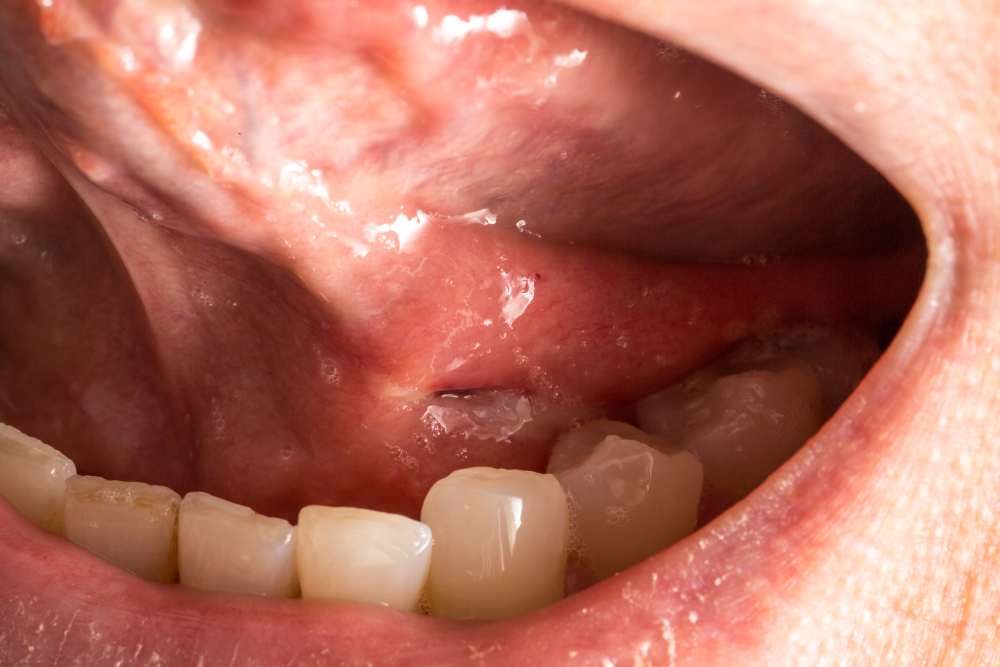
Cysts and Tumors
In rare cases, impacted wisdom teeth can lead to the formation of cysts or tumors. These growths can damage the surrounding bone, teeth, and nerves, causing pain and requiring surgical intervention.
Symptoms of Wisdom Tooth Pain

Common Symptoms
- Persistent Ache: A dull, continuous ache in the back of the mouth that may worsen over time.
- Sharp Pain: Sudden, intense pain that can be triggered by biting down or touching the area around the wisdom tooth.
- Gum Swelling: The gum around the wisdom tooth may become red, swollen, and tender to the touch.
- Jaw Pain: Pain that radiates from the wisdom tooth into the jaw, ear, or even the throat.
- Headaches: Pain from a wisdom tooth can sometimes cause tension headaches, particularly if the tooth is impacted.
- Difficulty Opening the Mouth: Swelling and pain can make it difficult to fully open the mouth, which can affect eating and speaking.
- Bad Taste or Breath: An unpleasant taste or odor in the mouth may indicate an infection, particularly if there is pus around the tooth.
When to Seek Immediate Care
Wisdom tooth pain can sometimes escalate quickly, leading to serious complications. Seek immediate dental care if you experience:
Severe Swelling
Swelling that extends to the cheek or neck could indicate a spreading infection.
High Fever
A fever accompanying wisdom tooth pain may signal a severe infection.
Difficulty Breathing or Swallowing
These symptoms suggest that the infection is spreading and requires urgent medical attention.
Diagnosis of Wisdom Tooth Pain

Dental Examination
If you suspect that your wisdom teeth are causing pain, the first step is to consult a dentist. A thorough examination will help determine whether your wisdom teeth are the source of the discomfort. The dentist will check for signs of impaction, infection, and decay.
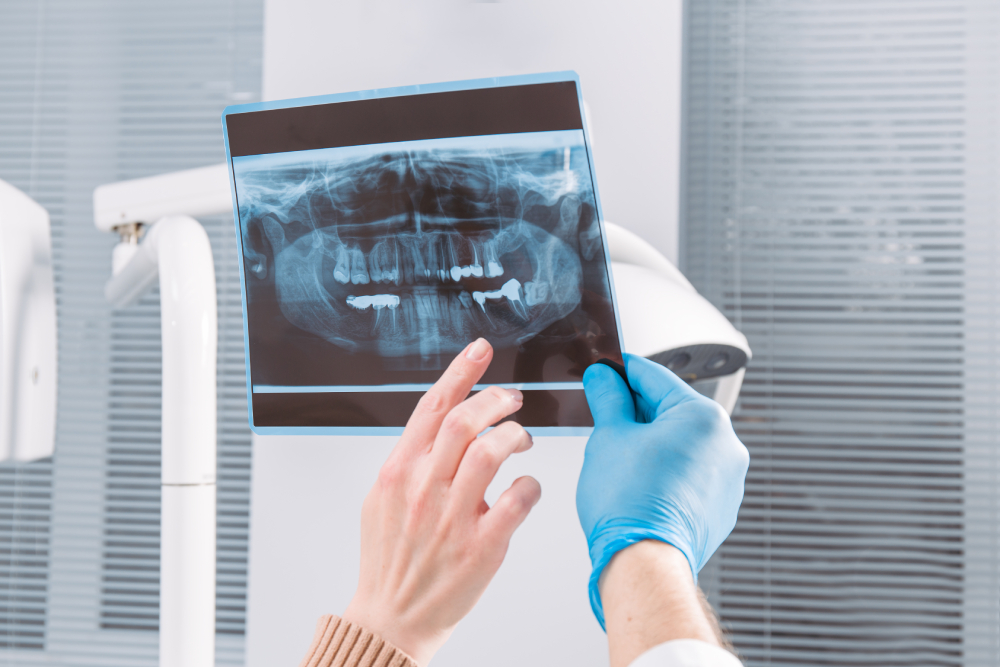
X-Rays and Imaging
Dental X-rays are a crucial diagnostic tool for assessing the position and condition of wisdom teeth. X-rays can reveal the exact alignment of the teeth, the degree of impaction, and the presence of any cysts or other abnormalities. In some cases, a panoramic X-ray or 3D imaging may be used to provide a more detailed view.
Treatment Options for Wisdom Tooth Pain

Pain Management
- Over-the-Counter Medications: Pain relievers such as ibuprofen or acetaminophen can help manage the discomfort associated with wisdom tooth pain. These medications reduce inflammation and provide temporary relief.
- Saltwater Rinse: Rinsing your mouth with warm salt water several times a day can soothe irritated gums and help prevent infection.
- Cold Compress: Applying a cold compress to the outside of your cheek can reduce swelling and numb the area, providing relief from pain.
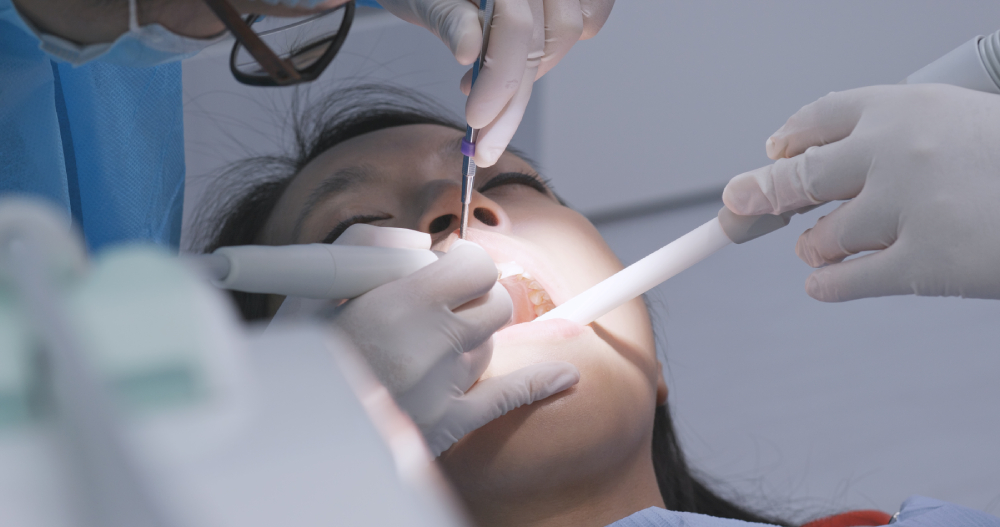
Dental Procedures
- Extraction: The most definitive treatment for wisdom tooth pain is extraction. Removing the problematic tooth eliminates the source of pain and prevents future issues.
- Surgical Removal: For impacted wisdom teeth, a surgical procedure may be necessary. This involves making an incision in the gum, sometimes removing bone, and extracting the tooth. This is usually done under local anesthesia, but sedation or general anesthesia may be used for more complex cases.
- Flap Surgery: If an infection or gum disease is causing the pain, your dentist may recommend flap surgery to clean the affected area and remove any debris or infection.
Wisdom Tooth Extraction as a Preventive Measure
In some cases, dentists may recommend removing wisdom teeth before they cause problems, especially if X-rays show that they are likely to become impacted. Preventive extraction can spare you the pain and complications that may arise later.
Post-Extraction Care
Immediate Aftercare
After the extraction of a wisdom tooth, proper aftercare is essential to ensure a smooth recovery:
Rest
Take it easy for the first 24 hours. Avoid physical exertion, which can increase bleeding and swelling.
Diet
Stick to soft foods like yogurt, applesauce, and mashed potatoes. Avoid hot, spicy, or crunchy foods that could irritate the extraction site.
Oral Hygiene
Gently rinse your mouth with warm salt water starting 24 hours after the extraction to keep the area clean. Avoid brushing the extraction site directly for the first few days.
Avoid Smoking
Smoking can delay healing and increase the risk of developing a painful condition known as dry socket.
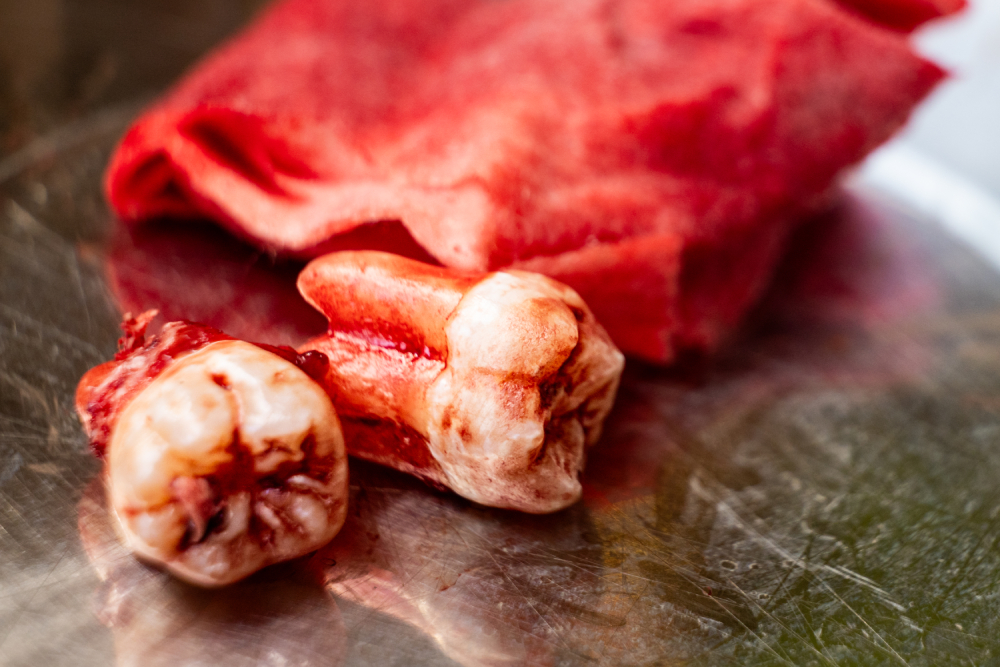
Complications to Watch For
While most people recover from wisdom tooth extraction without any issues, it’s important to be aware of potential complications:
- Dry Socket: If the blood clot at the extraction site is dislodged, it can expose the bone and nerves, causing severe pain. This condition requires prompt treatment by a dentist.
- Infection: Signs of infection include fever, persistent swelling, and pus discharge from the extraction site. If you notice these symptoms, contact your dentist immediately.
Prevention of Wisdom Tooth Pain
Regular Dental Visits
One of the most effective ways to prevent wisdom tooth pain is through regular dental check-ups. Your dentist can monitor the development of your wisdom teeth and detect potential issues before they become painful. Early detection allows for timely intervention, such as extraction or other preventive measures.
Maintain Good Oral Hygiene
Good oral hygiene is essential in preventing wisdom tooth pain. Brush twice a day with fluoride toothpaste, floss daily, and use an antiseptic mouthwash to reduce bacteria in the mouth. Pay special attention to cleaning the area around your wisdom teeth, as food particles and plaque can easily become trapped there.
Healthy Diet
A balanced diet rich in vitamins and minerals supports overall oral health and can help prevent issues related to wisdom teeth. Limit your intake of sugary and acidic foods, which can contribute to tooth decay and gum disease.
The Impact of Wisdom Tooth Pain on Overall Health
Potential Complications
Untreated wisdom tooth pain can lead to several serious complications. Infections can spread to other parts of the body, causing systemic issues that may require hospitalization. Cysts or tumors that form around impacted teeth can damage the jawbone and adjacent teeth, leading to more extensive dental procedures.
Oral Health and Quality of Life
Chronic wisdom tooth pain can significantly impact your quality of life. It can make eating and speaking difficult, interfere with your sleep, and cause ongoing discomfort. Addressing wisdom tooth pain promptly can prevent these disruptions and improve your overall well-being.
Mental Health Considerations
Chronic pain, including that from wisdom teeth, can take a toll on mental health. Persistent discomfort can lead to anxiety, stress, and even depression. Timely treatment of wisdom tooth pain is essential not just for your physical health, but for your mental well-being as well.
Conclusion
Wisdom tooth pain is a common issue that affects many people, particularly in their late teens and early twenties. Understanding the causes, symptoms, and treatment options for wisdom tooth pain is essential for managing this condition effectively.
Regular dental check-ups, good oral hygiene, and timely intervention can help prevent or alleviate wisdom tooth pain, ensuring that your overall oral health remains in good shape.
If you’re experiencing wisdom tooth pain, don’t wait until the discomfort becomes unbearable. Schedule an appointment with your dentist to discuss your symptoms and explore your treatment options. Early action can make a significant difference in your oral health and quality of life.

Frequently Asked Questions
What purpose do wisdom teeth serve?
Wisdom teeth are the third molars which grow out into the permanent dentition at around 18 to 25 years of age. They help us to chew or masticate our food, to break it down so that the body is able to absorb the smaller food particles.
What triggers wisdom teeth to grow?
Wisdom teeth grow out as part of the developmental process of our body. They typically grow out into the oral cavity and are visible from 18 years of age.
Why should a wisdom tooth be removed?
If a wisdom tooth grows out in a proper alignment in the dental arch and is fully functional and you are able to maintain your oral hygiene, you do not have to remove your wisdom tooth. Most of the time however, our jaws are too small to accommodate the size of the wisdom tooth, and they tend to become impacted or stuck against the tooth in front or grow out in the wrong direction. When that happens, it can cause pain and infection and that is when you should consider removing your problematic wisdom tooth.
What happens if a wisdom tooth is not removed?
It can cause decay to set in on the front tooth if food gets impacted or stuck between the wisdom tooth and the tooth in front. Infection can also set in if you are unable to clean the area around the wisdom tooth.
What makes wisdom tooth pain worse?
Ignoring early signs of discomfort at the wisdom tooth area will cause either the decay to get worse or the infection to get worse. If the decay on the tooth in front of the wisdom tooth hits the nerve, you will end up needing root canal treatment, or worse, even an extraction.
How do I know if my wisdom tooth is infected?
You may see very reddish gums around the wisdom tooth that is very tender to touch. Sometimes there will even be yellowish pus discharge from the gum area, accompanied with bleeding around the area. You should seek dental attention as soon as possible.
Can wisdom tooth pain go away on its own?
There are instances when a wisdom tooth is trying to grow out fully into the oral cavity and sometimes, they succeed and grow into their proper space. The pain that you experience may then subside. But in most instances, wisdom tooth pain does not go away but worsen instead. It is always a good idea to have your dentist take a look just to be sure.
When should I see a dentist for wisdom teeth pain?
At the earliest opportunity. If you experience a slight discomfort at your wisdom tooth area, it is always a good idea to have it looked at so that simple problems do not escalate into a bigger problem like a root canal problem on the front of the wisdom tooth or the infection worsening.
